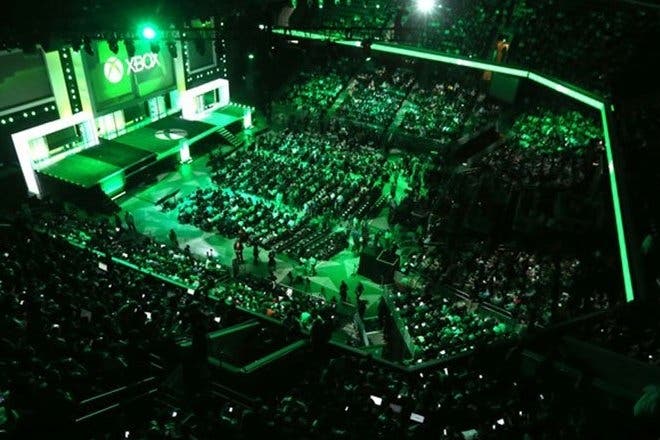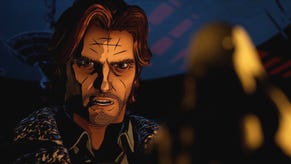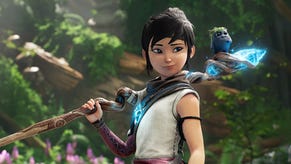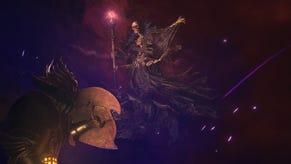E3 2014: the relaunch of brand Xbox One
Games, games, games.
Microsoft's 90 minute E3 2014 show was all about the games. How things have changed.
I remember in May last year, when Microsoft unveiled the Xbox One at a press conference in Redmond, the focus was on TV, TV, and more TV. As you'd expect, the reaction from gamers - and developers - was far from positive.
This, coupled with the controversy surrounding Microsoft's U-turns on game sharing, second hand and always online, and the power difference compared to Sony's cheaper PlayStation 4, meant Xbox One launched under a cloud of cynicism among core gamers - those early adopters who Microsoft needed the most.
As it turned out, the Xbox One sold faster than its predecessor, the Xbox 360, which for Microsoft was great news, but it lagged behind sales of the PS4. And that sales difference has continued over the last eight months. In some countries, it's even grown.
Enter Phil Spencer.
Spencer, previously the boss of Microsoft Studios, replaced Don Mattrick atop of the Xbox tree in March 2014, and he made a quick impact, saying all the right things and, crucially, promising gamers a renewed focus on games.
"This past year has been a growth experience both for me and for the entire Xbox team," Spencer said at the time.
"We've taken feedback, made our products better and renewed our focus on what is most important, our customer. Our mission is to build a world-class team, work hard to meet the high expectations of a passionate fan base, create the best games and entertainment and drive technical innovation. As we continue forward, this renewed focus and mission will be a foundational part of how I lead the Xbox program.
"You will hear much more as we head into E3, but we are at the beginning of an incredible new chapter for Xbox and I can't wait for the days and years ahead. This is going to be fun."
It wasn't long before a crucial decision was made - perhaps the most crucial decision Spencer will make all year: to sell Xbox One without Kinect for a cheaper price - the same as the PS4. The announcement was made in May - a month before E3 began.
As the speed of Xbox One system updates ramped up so did the promise to listen to feedback become increasingly vehement. And then, last week, Spencer took the stage at Microsoft's E3 press conference and the first thing he did was thank Xbox One owners for their support. Then, "you are shaping the future of Xbox, and we are better for it." Not one mention of "the cloud", nor one mention of Kinect. The "new chapter" had begun.
Maybe the press conference was born out of a desperation to boost sales of the Xbox One. Maybe it was the result of a genuine desire to get back the Xbox's roots. Maybe it was a bit of both. Whatever the case, speaking to developers and publishers at E3 last week, almost all welcomed Spencer as the boss of Xbox, and almost all praised Microsoft's change of tack.
"In fact, we couldn't fit everything in. So we had more than time allowed. We've got some big guns waiting in the wings for Gamescom and beyond."
"We had three objectives for our presentation at E3," Microsoft Studios Europe boss Phil Harrison tells me just a few hours after the briefing ends.
"The first was to demonstrate unequivocally that Xbox is the best place to play games this holiday, supported by some incredible blockbusters and exclusive franchises, Sunset Overdrive, Forza, Halo, Fable, real mega blockbusters; to give a real sight line into 2015 and beyond; and to show our commitment as a platform to the innovation we will be bringing to Xbox One long into the future.
"The second thing was to show how our commitment to Xbox Live and the innovation we're building into Xbox Live not just in terms of features but also dedicated servers - a lot of the games you saw or heard about today will be enabled with dedicated servers for a better player experience.
"And then the third thing, which we announced a couple of weeks ago, but is now taking effect, is a new entry point for the Xbox One platform at a lower price. So we can make Xbox One even more appealing to a wider audience.
"Some of the business messages we announced in the run up to E3 allowed us just to create 90 minutes of games. And in fact, we couldn't fit everything in. So we had more than time allowed. We've got some big guns waiting in the wings for Gamescom and beyond."
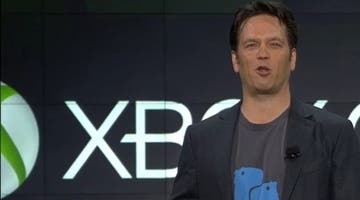
Exclusive games are exactly what the Xbox One needs right now, because when it comes to multiplatform titles from the likes of EA, Activision and Ubisoft, Microsoft is at a disadvantage.
Sony is pushing the power angle hard in its marketing of the PS4, stressing it's "the world's most powerful console". It's a slogan that's hard to argue with and, I imagine, presents Microsoft with a tough PR challenge.
"Our response was the last 90 minutes," Harrison says. "It's to demonstrate we have the most incredible lineup of games coming this holiday and beyond. No other console will have those exclusives, those blockbusters with unique advantages this holiday. That is what consumers buy consoles for - to play great games."
Console sales are one thing, game sales are another. In the UK at least, big multiplatform games such as Watch Dogs sell more on PS4 than they do on Xbox One. This is of course tied to install base, where in the UK Sony has reversed its fortunes having trailed behind the Xbox 360 during the last generation. But it is a gap Microsoft will be keen to close as soon as possible - much money is to be made off of software sales, after all.
"There are three ingredients to continued growth and success in the marketplace for us," Harrison said.
"One is having the best games lineup. The second is having the best multiplayer gaming service, supported by continuous innovation, monthly platform updates, which add features and functionality and value to the console that consumers have chosen. And then having a new lower price for people to buy into the generation. Those are the ingredients for success.
"The manifesto we just laid out at E3 is probably one of the strongest lineups of games I've seen in many many years. I hope that has the audience and your readers excited."
Part of this Xbox One rebrand (this is what I'm calling it - it's not an official strategy, at least publicly) is the decision to tweak the way Microsoft talks about the console. The vision it outlined at E3 2013 for the power of the cloud and how it would boost Xbox One games remains unchanged, but for now Microsoft is talking about dedicated servers - a much easier to understand term.
And Microsoft didn't once say the word Kinect during the press conference, either.
"Our vision of Xbox and Kinect as being the ultimate experience of Xbox One remains the focus of our attention."
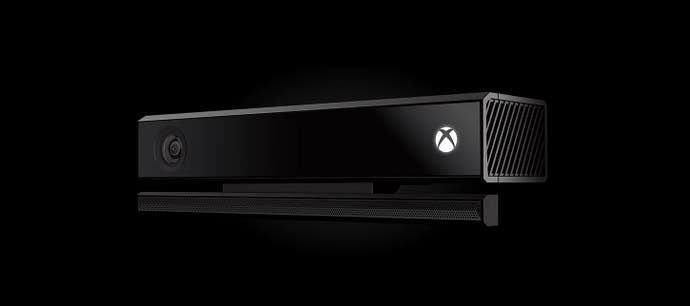
Last month Microsoft sparked a heated discussion about the future of Kinect when it announced it would sell Xbox One without the sensor from 9th June.
The removal of Kinect from the basic Xbox One package means that the console is now £349 in the UK and $399 in the US. When Xbox One launched in November 2014 it cost £450. A standalone Kinect sensor for Xbox One goes on sale this autumn.
According to Microsoft, Kinect is still an important part of the Xbox One proposition. Indeed, according to Harrison, Xbox One plus Kinect equals "the ultimate experience".
But if Kinect is still an important part of Microsoft's plan for Xbox One, why not mention it during the E3 press conference?
When quizzed on this point, Harrison points to the on-stage time Microsoft granted Kinect exclusives Dance Central: Spotlight and Disney Fantasia: Music Evolved, as well as the appearance of eye-catching indie game Fru during the ID@Xbox section.
"We continue to invest in Kinect at the platform level, with enhancements to voice and gesture and biometric sign-in," Harrison says. "So lots of continual R&D investment in Kinect.
"But the 90 minutes of games we showed was just a representation of what we thought was going to be the most exciting and compelling lineup to demonstrate what Xbox One is about this holiday. I'm really pleased it seemed to land well."
"In the same way as we've given our fans a choice, we've given developers a choice."
The May announcement about Xbox One and Kinect caused a number of developers to openly question whether it was now worth making a Kinect game.
"Oh, great. Super great," was then Harmonix developer John T Drake's response on Twitter. Given Harmonix is working on both Dance Central: Spotlight and Fantasia: Music Evolved, the response was understandable.
So, if you're a developer, why bother creating a Kinect game now?
"In the same way as we've given our fans a choice, we've given developers a choice," Harrison replied. "A developer can then choose what kind of experience they want to build, what kind of features they want to put into their game and what kind of audience they want to go after."
Is Kinect now a dead platform?
"Certainly not," Harrison insisted. "Our vision of Xbox and Kinect as being the ultimate experience of Xbox One remains the focus of our attention. We have just given consumers a choice as to how they get into our ecosystem. That's good for the platform as a whole. It's good for the developer ecosystem. And it's ultimately good for gamers, which is the primary motivation."
With the crucial second Christmas fast approaching the cheaper, Kinect-less Xbox One, and with big exclusive games such as Sunset Overdrive, Forza Motorsport 2 and Halo: The Master Chief Collection ready to launch, Microsoft will be hoping being good for gamers will also be good for its bottom line.
